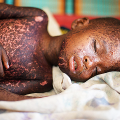The spread of Mpox, previously known as monkeypox, continues to rise in Nigeria and across Africa, as public health agencies ramp up efforts to combat the growing threat. The Nigeria Centre for Disease Control and Prevention (NCDC) reported an increase in Mpox cases to 102 confirmed cases across 26 states and the Federal Capital Territory (FCT), up from the previous 94 cases. This surge underscores the increasing risk posed by the disease, which has been spreading globally since the 2022 outbreak.
In a press briefing held in Abuja, Dr. Jide Idris, Director General of NCDC, highlighted Nigeria’s ongoing response to the Mpox outbreak. He emphasized the importance of surveillance, stakeholder engagement, and community outreach as critical pillars of the national response. “We are primarily dealing with the Clade IIB variant, which has been circulating in Nigeria; however, we are also monitoring the situation in Cameroon, where both Clade IB & IIB are reported,” Idris explained. He further noted that the NCDC is closely monitoring the more severe Clade IB strain, which is currently circulating in Kenya, Uganda, Burundi, and the Democratic Republic of the Congo (DRC), posing a risk of community transmission.
Despite the steady rise in cases, Idris reassured the public, noting that no deaths have been recorded in Nigeria, a sign that the outbreak is being managed effectively. The surge in numbers, he said, is partly due to enhanced surveillance and improved case detection. The NCDC is partnering with the National Primary Healthcare Development Agency and National Agency for Food and Drug Administration and Control (NAFDAC) to deploy 10,000 doses of the Mpox Jynneos vaccine. These will be prioritized for high-risk groups, including confirmed case contacts and immunocompromised individuals, with states like Bayelsa, Rivers, Cross River, and Akwa Ibom receiving priority based on the historical burden of cases.
On a continental level, Africa faces an even greater challenge. The head of Africa Centres for Disease Control and Prevention (Africa CDC), Jean Kaseya, reported that Mpox cases have now spread to 25 African nations, including new outbreaks in Zambia and Zimbabwe. The region remains a hotspot for the global Mpox epidemic, with Eastern DRC being the epicenter of infections. In a tragic update, Kaseya revealed that the death toll across the continent has now risen to 1,100, with 50 new fatalities recorded this week alone.
Kaseya urged international partners to honor their commitments in supporting Africa’s Mpox response, noting that a joint six-month response plan by Africa CDC and the World Health Organization (WHO) requires an estimated $600 million to manage the crisis. 55% of the budget will go towards supporting the 14 hardest-hit countries and enhancing preparedness in 15 additional nations.
Mpox, a zoonotic viral disease related to smallpox but with milder symptoms, typically causes fever, body aches, and in more severe cases, lesions on the face, hands, and genitals. The virus, first discovered in Denmark in 1958, had previously been confined to sporadic outbreaks in Central and West Africa before its rapid spread during the 2022 global outbreak. While wealthy countries initially responded quickly with vaccine stockpiles, African nations have continued to grapple with the disease’s spread and the need for sustained support.
In Nigeria, the public is advised to avoid contact with sick or dead animals and refrain from consuming undercooked meat, as these are common transmission routes for the virus. Anyone with a rash or illness is encouraged to seek immediate care at the nearest health facility.
As global health authorities remain on high alert, the fight against Mpox continues, with Africa and Nigeria working to contain the outbreak and prevent further loss of life.
Contact:
Nigeria Centre for Disease Control and Prevention
Phone: (234) 123-4567
Website: www.ncdc.gov.ng





